$1M in grants to boost local food system in Hampshire County
| Published: 02-18-2024 9:30 AM |
NORTHAMPTON — Area organizations are welcoming grant awards that will boost the supply of fresh, local food available to those in need and provide support for local farmers.
“We’re really thrilled to have been selected,” said Lev BenEzra, executive director of the Amherst Survival Center. “The grant serves two functions — it helps support the local food system and food access, and it makes sure food purchased from farms gets to the right people.”
The Survival Center was awarded $430,000 for its Farm to Pantry Project through the Massachusetts Department of Agricultural Resources’ Local Food Purchase Assistance Plus grant.
Of that amount, $420,000 will be spent directly on food purchased from local producers, BenEzra said. The grant allows purchasing from anywhere in Massachusetts, but almost all the food bought by the Survival Center comes from within 25 or 30 miles from Amherst, she said.
Other area organizations to receive substantial grants were Grow Food Northampton and the Hilltown Community Development Corp.
Grow Food’s multiyear, $300,000 grant will go toward food purchases from a network of farmers the state describes as “socially disadvantaged.”
“It’s incredibly helpful to farmers,” Executive Director Alisa Klein said. “It supports the local economy, keeping money in the community.”
The farmers Grow Food buys from, including communities of color and women, often don’t have easy access to markets.
Article continues after...
Yesterday's Most Read Articles
 More than 130 arrested at pro-Palestinian protest at UMass
More than 130 arrested at pro-Palestinian protest at UMass
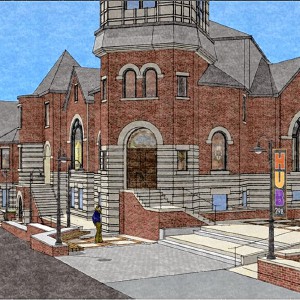 Public gets a look at progress on Northampton Resilience Hub
Public gets a look at progress on Northampton Resilience Hub
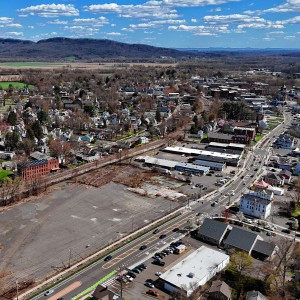 Northampton bans auto dealerships near downtown; zone change won’t affect Volvo operation on King Street
Northampton bans auto dealerships near downtown; zone change won’t affect Volvo operation on King Street
 UMass basketball: Bryant forward Daniel Rivera to be Minutemen’s first transfer of the offseason
UMass basketball: Bryant forward Daniel Rivera to be Minutemen’s first transfer of the offseason
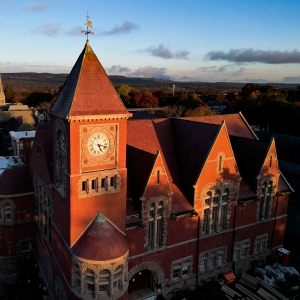 Town manager’s plan shorts Amherst Regional Schools’ budget
Town manager’s plan shorts Amherst Regional Schools’ budget
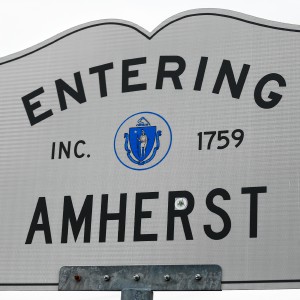 Police respond to alcohol-fueled incidents in Amherst
Police respond to alcohol-fueled incidents in Amherst
“We were doing local food delivery,” Klein said. “This grant makes it possible to buy that much more, and get that much more food to people experiencing food insecurity.”
Grow Food has purchased from 64 farms, Klein said, including lessees at its own Community Farm such as Song Sparrow Farm and the Somali Bantu farmers’ New Family Cooperative.
“It’s an incredibly robust community,” she said. “It’s incumbent on us to support them.”
BenEzra said the grant allows the Survival Center to diversify its offerings, with different types of milk, eggs from Diemand Farm, cheese from Sidehill Farm and meat from local producers.
Klein and BenEzra both say that the need for food supports has soared since the end of pandemic subsidies.
Recent reports show food insecurity on the rise in Massachusetts. At the end of 2023, a U.S. Census report estimated that 22% of households with children were food-insecure. The term refers to those who can’t afford groceries after paying other required monthly expenses such as rent, utilities and transportation.
“We are experiencing absolutely record-breaking need,” BenEzra said. “We’re serving 40% to 50% more people than we were during the pandemic.”
The grant aid, which continues through May 2025, will ensure the Survival Center can keep its shelves stocked with a wide variety of food.
In an interview with the Greenfield Recorder, MDAR Commissioner Ashley Randle said community is important in addressing food insecurity.
“It is a community effort,” she said. “It takes the farms, businesses, the towns and the state and consumers all coming together to make these programs really impactful.”
BenEzra credited MDAR for helping local producers to be more competitive.
“It couldn’t come at a better time,” she said. “The Farm to Pantry Project provides such a win-win. Patrons have more food, and local farmers have a new market. It strengthens the local food system for all.”
Other MDAR grants announced last week included:
■ $200,000 to Hilltown CDC to expand its free “Help Yourself” fridge, CSA shares, and food pantry distributions.
■ $50,000 to the Northampton Survival Center to expand food purchasing and distribution through new partnerships with farmers, producers and food distribution centers.
■ $14,065.67 to Hilltown CDC to assess food access points to create a brochure highlighting local farms, grocery stores, free meal programs and food pantries.
■ $20,000 to the town of Ware to expand and develop the Quaboag Valley Food Policy Council’s vision to connect local resources, provide education about nutritious food, and promote and advocate for local food availability.
In all, MDAR awarded $8.2 million under four grant programs across the state.
“One of the most effective ways to combat hunger and food insecurity in our state is to strengthen our local food systems,” Gov. Maura Healey said in a statement. “We’re proud to support our community leaders who are at the heart of these critical initiatives that help to make sure that everyone, no matter where they live, has access to fresh, healthy and locally grown food.”

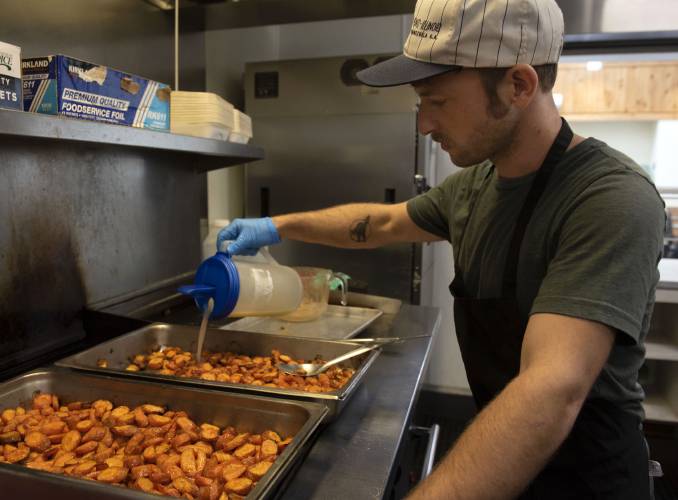
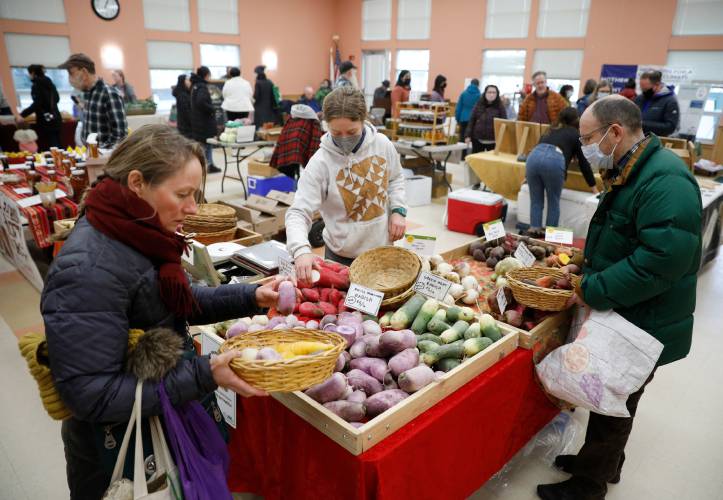
 Valley lawmakers seek shorter license for FirstLight hydropower projects
Valley lawmakers seek shorter license for FirstLight hydropower projects State Senate budget funds free community college for all
State Senate budget funds free community college for all ‘We can just be who we are’: Thousands show support for LGBTQ community at Hampshire Pride
‘We can just be who we are’: Thousands show support for LGBTQ community at Hampshire Pride Doors open at Tilton Library’s temporary home at South Deerfield Congregational Church
Doors open at Tilton Library’s temporary home at South Deerfield Congregational Church
